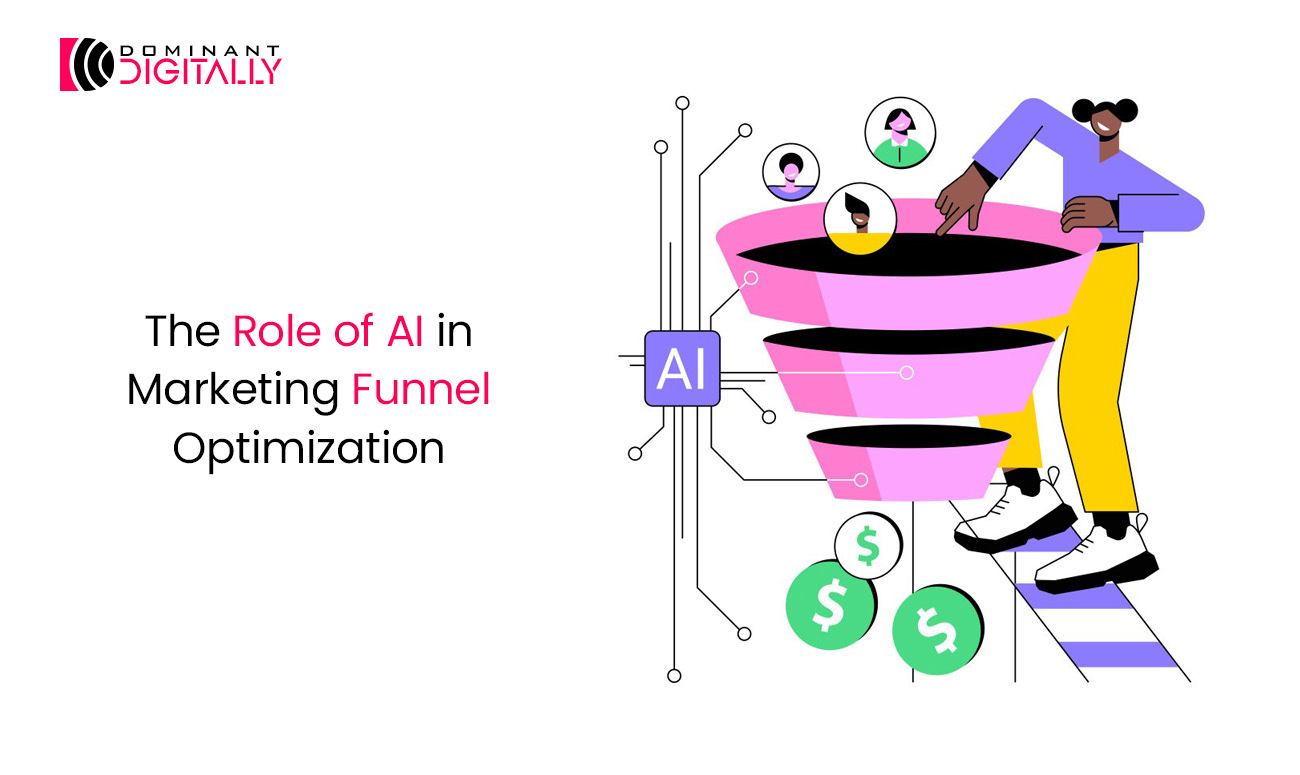
Introduction
Marketing funnel optimization is essential for businesses looking to maximize conversions and enhance customer engagement. The traditional marketing funnel consists of multiple stages, including awareness, consideration, conversion, and retention. However, manually managing and optimizing these stages can be challenging.
Artificial Intelligence (AI) is transforming marketing funnels by automating processes, analyzing vast amounts of data, and providing personalized experiences at every stage of the customer journey. This article explores how AI enhances marketing funnel optimization and helps businesses achieve better results.
1. AI in the Awareness Stage
The awareness stage focuses on attracting potential customers and increasing brand visibility. AI-powered tools help businesses reach the right audience through data-driven strategies.
AI Applications in the Awareness Stage
- Predictive Audience Targeting: AI analyzes consumer behavior and predicts which audiences are most likely to engage with a brand.
- Automated Content Creation: Generating blog posts, social media posts using AI social media post generator.
- AI-Powered SEO: AI tools optimize content for search engines, improving rankings and organic traffic.
- Social Media Insights: AI monitors social media trends and suggests content strategies for better engagement.
- Programmatic Advertising: AI automates ad placements and bidding processes, ensuring optimal reach and cost efficiency.
- Voice and Visual Search Optimization: AI helps brands optimize their content for voice searches and image recognition, enhancing visibility.
- AI-Powered Video Marketing: AI analyzes video engagement and recommends content styles that resonate with the audience.
By leveraging AI in the awareness stage, businesses can increase their visibility and attract relevant prospects.
2. AI in the Consideration Stage
During the consideration stage, potential customers evaluate products or services. AI helps businesses nurture leads and provide personalized experiences to move them down the funnel.
AI Applications in the Consideration Stage
- Chatbots and Virtual Assistants: AI-powered chatbots answer customer queries in real-time, providing relevant information and support.
- Personalized Recommendations: AI analyzes user behavior to suggest relevant products or services.
- Email Personalization: AI customizes email campaigns based on customer interests and interactions.
- Sentiment Analysis: AI evaluates customer feedback and reviews to refine marketing messages.
- AI-Driven Lead Scoring: AI assesses lead quality based on engagement levels, helping sales teams prioritize high-potential leads.
- Behavioral Analytics for Lead Nurturing: AI studies customer behavior patterns and suggests the best engagement tactics.
- AI-Generated Product Comparisons: AI assists users in comparing products based on their preferences, streamlining decision-making.
AI-driven personalization and engagement tactics significantly improve the effectiveness of the consideration stage.
3. AI in the Conversion Stage
The conversion stage is where prospects turn into customers. AI optimizes this stage by streamlining the purchase process and increasing conversion rates.
AI Applications in the Conversion Stage
- Dynamic Pricing Optimization: AI adjusts prices based on demand, competitor pricing, and customer behavior.
- AI-Powered A/B Testing: AI quickly tests different versions of landing pages, ads, and CTAs to determine the best-performing variations.
- Predictive Analytics: AI forecasts purchasing behavior and recommends the best time to engage with prospects.
- Automated Retargeting Campaigns: AI identifies abandoned carts and re-engages potential customers with personalized offers.
- Conversational AI for Sales: AI-driven chatbots assist customers during checkout, answering questions and addressing concerns in real-time.
- Voice and Chat Commerce: AI enables voice-activated shopping and chatbot-driven transactions for seamless purchases.
- AI-Optimized Checkout Process: AI detects friction points in the checkout experience and suggests real-time solutions to reduce cart abandonment.
By leveraging AI, businesses can increase their conversion rates and reduce drop-offs during the purchasing process.
4. AI in the Retention Stage
Customer retention is crucial for long-term business success. AI helps businesses maintain strong relationships with customers and encourage repeat purchases.
AI Applications in the Retention Stage
- Customer Segmentation: AI categorizes customers based on behavior and preferences, enabling targeted retention strategies.
- AI-Driven Loyalty Programs: AI personalizes reward programs to keep customers engaged.
- Predictive Customer Support: AI anticipates customer issues and provides proactive solutions.
- Automated Follow-Ups: AI schedules follow-up emails and notifications to maintain customer engagement.
- Churn Prediction Models: AI identifies at-risk customers and suggests retention strategies to prevent churn.
- AI-Enhanced Customer Experience Management: AI detects patterns in customer interactions and refines engagement strategies.
- Smart Recommendations for Upselling & Cross-Selling: AI recommends relevant products based on past purchases to enhance lifetime customer value.
- AI-Driven Social Listening: AI monitors online conversations and reviews to understand customer concerns and take proactive action.
By integrating AI into customer retention strategies, businesses can build long-term loyalty and maximize lifetime customer value.
5. AI-Powered Marketing Analytics & Decision Making
AI not only optimizes each stage of the marketing funnel but also enhances overall decision-making through data-driven insights.
AI Applications in Marketing Analytics
- Real-Time Data Processing: AI analyzes massive datasets instantly, providing actionable insights for marketing teams.
- Marketing Performance Optimization: AI evaluates campaign effectiveness and suggests improvements for better ROI.
- Customer Lifetime Value Prediction: AI estimates the future value of customers, helping businesses allocate resources efficiently.
- Trend Forecasting: AI predicts emerging market trends, allowing businesses to stay ahead of competitors.
- AI-Driven Competitive Analysis: AI studies competitor strategies and provides recommendations for differentiation.
By using AI for data-driven marketing strategies, businesses can continuously refine their funnel and achieve higher efficiency.